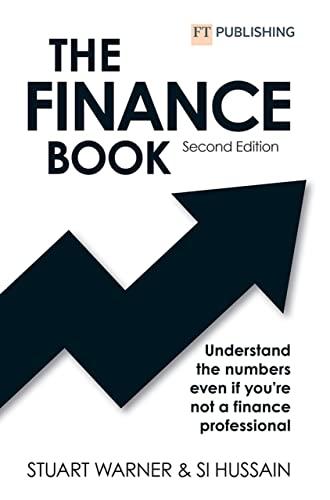Suppose you recently paid $1000 for a new 30-year bond issued by the telecommunications company, Verizon. The interest ("coupon") rate is 6 percent, and for the sake of simplicity, lets assume that the $60 is paid once a year at the end of the year. Given the 6 percent interest rate, the present value of the bond's face value of $1000 paid thirty years from now is approximately $175. What is the present value of the stream of thirty, annual $60 payments? You can calculate the answer or use a shortcut.
Flag this Question
Question 492 pts
You just turned 24 years old. Your favorite Aunt Mary is so grateful for all of the nice things you and your twin sister have done for her over the years that she says that she will give you each $10,000 one year from now on your 25th birthdays. You are a very patient person, live with your parents, and have few debts. You apply only a 3% discount rate to your anticipated gift. Your twin, on the other, is an impatient person with lots of pressing financial needs. She would much prefer to get her hands on some money today, even if it meant receiving less than $10,000. Let's say that her discount rate is 15% for the anticipated gift. What is the approximate DIFFERENCE between the present value of your gift and your twin's gift?
Flag this Question
Question 502 pts
Imagine that your parents give you $1000 so that you can gain some experience in the stock market. You have identified a company that you think has good growth prospects, with shares currently selling at $10 each. You could immediately buy 100 shares, but you remember something called dollar cost averaging. You decide to invest $250 four times: today, in three months, in six months, and in nine months. After three months, the stock is selling at $12.50, and you feel dumb for not having put all of your money into the stock right away. After six months, however, the stock is back to $10 per share, and after nine months it drops to $6.25. After a full year, the stock is again trading at $10 per share. Ignoring any commissions or trading fees, approximately how much are your stocks worth after a full year? (Hint: you need to calculate how many shares you bought at each of the four purchase points and then multiply that number by the stock's final price of $10.)






